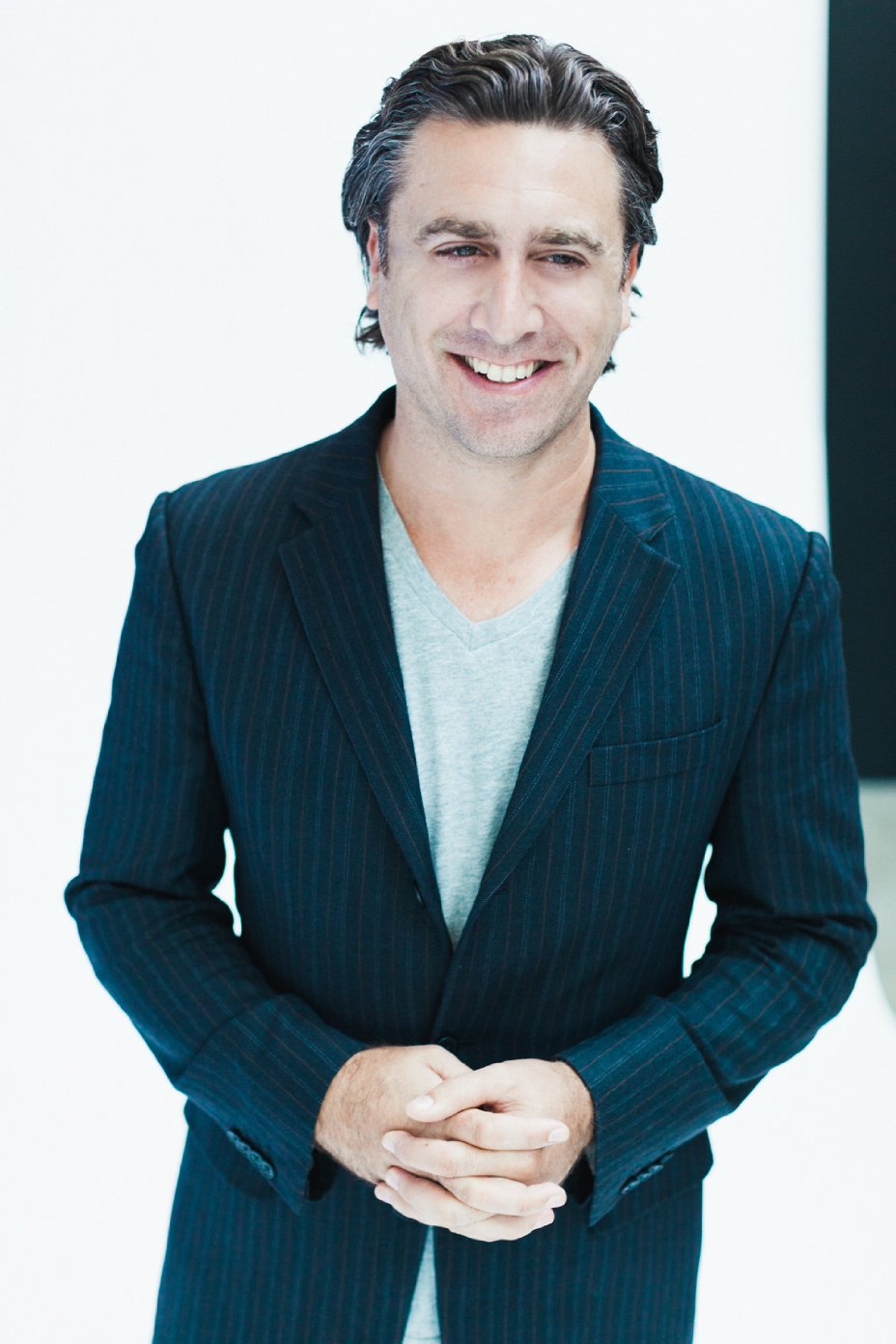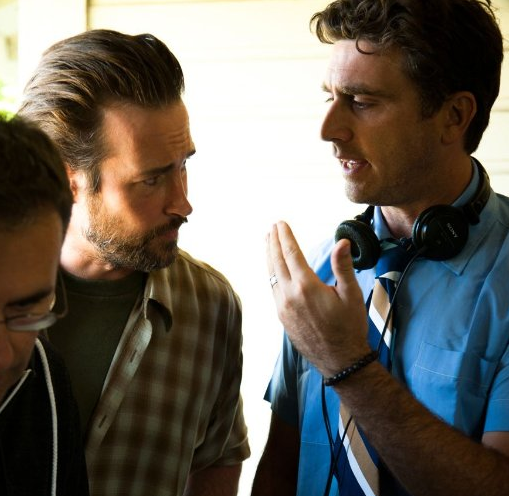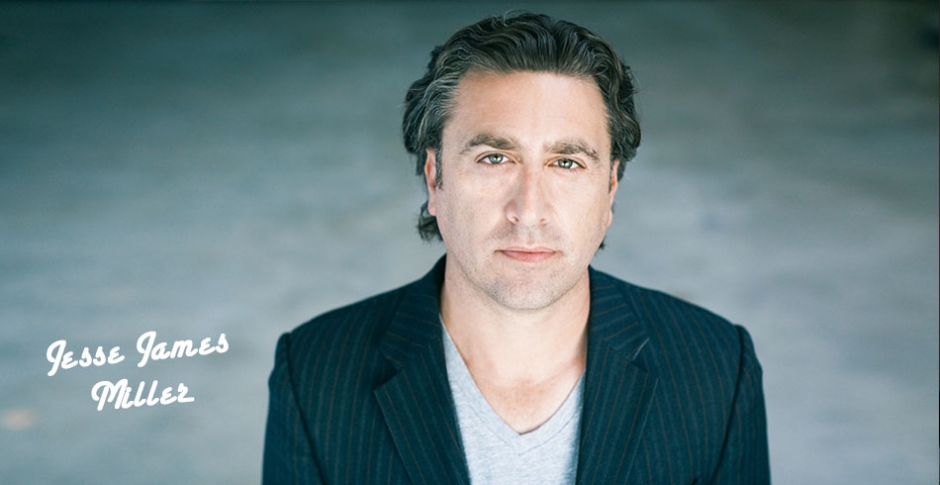Filmmaking is the ultimate artistic collaboration, Jesse James Miller
Written by Eva Csölleová, Vítek FormánekJesse James Miller is young filmmaker from Vancouver.Canada.He does almost everything at his films and so far you can find his name under documentary Uganda Rising or under films Corked, Rabbit,The Seamstress or Redwood. We met him at Zlín festival and stayed in touch so making an interview with such dedicated enthusist wasn´t a problem.
 What led you to become a film director.Were you impressed by somebody so wanted to follow the suit or you wanted to tell stories and have adventurous, artistic way of life?
What led you to become a film director.Were you impressed by somebody so wanted to follow the suit or you wanted to tell stories and have adventurous, artistic way of life?
I come from a long line of artist. It’s just in my blood and once I figured out that being an artist isn’t a choice, life became easier for me. This lifestyle is not by any means easy. Storytelling is just a natural place for me and filmmaking is a very collaborative form, so it was a perfect fit. I am always searching, but now it’s a search for my look, my feel, and the never ending art of trying to master specific areas of the filmmaking process. It’s an adventure.
What is the position for indie film in Canada. Do you use that term there?Do you have any platform where young enthusiastic film makers can come, show their film, exchange experience, hire equipment?
Indie filmmaking in Canada is complex. We have a government grant systems that caters to indies and diversity, as well as independent financing. I myself have never received a grant, so all my films have been independently financed, however there are programs to help out. Canada is very complex for the artist. Our programs, like I said are here, but have caveats. The allure of Hollywood is also here, just a few hours away and there are no ceilings. That’s why L.A is Canada’s 5th biggest city

You are producer, editor, director.Do you deliberatelly do everything yourself since you want to have everything under control and save money or you don´t like when someone pokes his nose into your job so try to be as much independent as possible?
I do whatever I can to get a film made, so sometimes it leads to learning other parts of the business. However I believe very strongly that you need to be able to write, because that’s everything. A strong script. This relates to both fiction and non fiction film, there are no blurring of the lines.
What is your aim,tell the stories that you think are important and show them everywhere you can or slowly move up the ladder and get into big business, shooting commercial things with little artistic value but commercial potential?
My aim is to continue to make a living at what I do. The film business is just that, a business. So you have to be aware of all angles, you have to be aware of what your getting yourself into, you have to be aware that it is called show-business for a reason. So for me, no matter where I am, whether an indie set, a studio set, a commercial set, a live theatre stage, wherever it is, you know why your there and what your job is. I of course am trying to elevate my artform every time I’m working, however at some point in your career, you need to understand your purpose in that moment.
Shane Carruth made film for 10 000 dollars which became hit and he got offers from big studios, which he refused.Do you think making such cheap film these days is just one off thing or he found way how to do it and studios wanted to buy him not to show the way to others which would endanger their profits?
We’ll I can’t really comment on Shane. I don’t know the deal he was proposed, however I can say that money does matter. Making cheap films has always been around and always will be, but to make a good film you need time and money really helps attain that. It’s one extreme against the other in my opinion. If you have no money, you have little resources but hopefully a lot of time. If you have a ton of money, you have more time and resources, but less creative flexibility. Either way is fine, but pitting them against each other is just a waste of it.
Many independent films have strong story and unusual way of being filmed.Why do you think they can´t find the way to general public who rather watch commercial trash without thinking.People are lazy to think or big corporations try to fight off those independent filmakers as potential threat?
The studios control the theatres generally. That’s true. At least on the big scale. So yes, it’s very difficult to get your film seen, but it’s imperative that we stop thinking there’s some big conspiracy stopping indie films from getting to the public. Never before has it been easier to get your work viewed. People want to see good films, that’s why film festivals exist. So it’s up to the filmmaker to create new models, create venues if needed for their work no matter what, and if it’s good, it’ll find it’s audience.

Can independent film makers who make films for pleasure ask for state or ministry grants or they have to fend for themselves?obscure,underground culture?
It’s my opinion that Canada is a haven for indie filmmakers or at least first time filmmakers. The Canadian grant system supports new talent and ethnic diversity very strongly here. It’s a culture that has a ceiling though, so when you’ve run out of room, it’s hard. Quebec is producing world class, academy award winning films, however they have there own star system. Quebec is different. They support there artists. It varies Province to province, so a lot depends on where you live. In Vancouver, it’s mainly a service industry to American productions. Nothing wrong with that of course, it’s big business, but there’s less emphasis on support for local filmmakers than say, Quebec.
Punk rock changed music and thinking of thousands of people around the world-be yourself, if you don´t have platform, create own one, be creative,use own way to distribuce.Do you think that independent film can follow the suite and break in big time become big subculture?
Yes. You have to remember that corporations and business don’t have ideas. Artists have ideas. WE control what’s out there, at least creatively. Dogma, Verite and so on were created by the artists, not the studios. Studios follow. Were slowly disintegrating the old model, and somehow, somewhere a new one will begin that’s more beneficial to the originator. You mention punk rock as an example. We’ll, the music industry went through tremendous upheaval in the 90’s and is finally finding it’s feet. It’s a renaissance for music and we’ll follow eventually. T.V is there, quality is changing, avenues for viewing is growing into the peoples hands, so it’s not far off. I always tell people, including myself to be patient, it’s coming.
When you made your first film and saw it on screen, what were your inner feelings?Like Johnny Cash hearing his songs on radio? Was it satisfaction that you made something, or just pure excitement irregardless of what people and critics said?
Pure fear. I remember the sound not working and a room full of people waiting. I almost threw up. That was my first film in 1997. 15 years later I still get nervous, but love to glance at people watching, getting emotional from a scene, talking after a screening. Cinema is very powerful, a very dynamic experience.

Can you tell me what steps do you do before you make a film and what is more important, budget or good screenplay?
Screenplay. You can’t polish a turd.
How do you distribute your films?Is there any closed circle among independent filmmakers or you got into mainstream distro?How were your films accepted, any awards?Did you loose or broke even?
Most of my films have gone through the indie cycle. Idea, script, budget, financing, production, post production, film festivals, distribution, theatrical (for 2), then ending with television broadcast and finally VOD. That’s the norm and it takes forever. I’ve won multiple awards around the world for my films and am very proud of there accomplishments, but as soon as there done, I move on, quickly. Mostly because I love what I do, but also because you’ ve got to make a living and nobody is going to help you, even when you’re an award winning filmmaker. It doesn’t get any easier. As they say in the biz: “Who’s Jesse James Miller”.....hey, we have to meet Jesse James Miller....Jesse James Miller is the best....Jesse James Miller is old news....Who’s Jesse James Miller?... Ha!
Do you attend foreign film festivals?If so is it to get contacts, see how others do it or screen your films?
I love going to foreign film festivals. I love meeting new people, new filmmakers. My favorite times through the years has been doing this. When I’m at festivals however, I don’t usually see films. I hang with the makers, talk about our experiences. Then, when I get home, I watch there movies. It’s a real event for me, to attend and soak it all in. It’s such an incredibly long journey making a film and once you see it on the screen it gives you the courage and energy to do it again.
What would you advice young indie filmmaker who would want to make his movie but has little money and almost no experience?
Write a great script or find an amazing story to do a documentary. It’s that simple. Money will come and if it doesn’t, the beginning of learning an art form is always exhilarating. Remember that filmmaking is the ultimate artistic collaboration. True collaboration is the most amazing experience of your artistic life, but a true collaboration is extremely hard to find and takes a lot of patience.
What are you next plans, what do you work at? Do you use same crew and same bunch of actors or you hire anybody who is available for lowest sum?
I’m prepping my new film “Rabbit”. I work with most of the same people in key positions, however am at the point where I’m also trying to elevate in every area. Currently I’m spending professional time in L.A and Vancouver, but soon am making a permanent move back to where my family is originally from, Los Angeles.
Is it possible to attract star actor to play in very low budget movie or they would take it as downgrading process?
Oh for sure actors are open. It’s the people that surround them that sometimes aren’t. There paid to be that way and I don’t necessarily blame them. I have friends that got scripts to stars and had them in their movies leading to nice careers. Star actors are still artist and looking for ways to stretch themselves, to challenge. You’d be surprised how open they are.
How did it happen that you make two films at one go?
Like always, you never know when the greenlight will happen with any idea, script or concept, so in this case they just both fell together near the same time. Thankfully and like earlier in my career there different types of genres, one a feature documentary and one a fictional feature film, so I was able to manipulate the schedules to do both within the same year. When your not making films, your developing pitches, writing scripts and pilots, anything to get a project going. Most filmmakers have multiple balls in the air and sometimes more than one goes. Sometimes none go. I've had both experiences.
How does it work,you have same crew for both films and use similiar decorations at the same place or finish shooting one day,take helicopter,fly to another destination and film there with different crew?
Because there's different types of genres, documentary calls for a different crew size and skill set versus fiction. However I'm lucky enough to have a Producing partner who also is the Director of Photography. He'll do both films. He has the skillset and experience to do both too, which is hard to find. Other than that the crews are completely different. I also was able to develop and work on casting while I was shooting the feature documentary. I'm hoping I get the doc in the can before I go into the features pre-production. That's the plan at least!!!! Fingers crossed.
Is it difficult to step in and step out from one film to another one cos you live one story, have feelings for film and now you have to switch it like coat?
That's a great question and the answer is yes. I did a couple MOW's last year and that's easy because it's the same genre, but working in documentary, jumping into someone's life story and then jumping into a genre film, it's a challenge. I've done it before, however the schedules were a bit more flexible. I did Becoming Redwood and The Good Son: The life of Ray "Boom Boom" Mancini" within a year and a half. That was tough. However, it's a concern, but I think like before the creative switch won't take much. I am a bit older now which is also a concern with a bigger family, but at the same time my experience level is higher, so I think I'll be able to pull it off!
Are the films of the same nature-say dramas- or totally opposite?Do you like them equally or one is No.1 with higher preferences and second is just another project that you make happen when chance arose?
Both completely different. Which is of course a positive and negative, but I love both to be honest and I just feel blessed to have another shot at making my own movies. It's just a very grateful feeling and it's been about 5 years since my last couple. Especially after doing a few MOW's in a row and doing some television for the pocket book. Nothing against that type of filmmaking, I do it when I have to, but having the chance to direct your own writing is why I do what I do and have been for two decades. So, I LOVE them both. I created and co-created both of them, which is also special. The documentary is called Chasing Evel: The Robbie Knievel story and it's a really hard look at the life of Evel's son and arguably one of the greatest daredevils of all-time, not named Evel. The relationship between father and son and the consequences of fame and a way of life that could instantly kill you is focused on, and it's a hard story, especially when Robbie is very much alive and still jumping. 5 decades as a daredevil. Never been done. I has a contemporary storyline as well as historical, so it's a hybrid of sorts and follows Robbie during his new found sobriety and eventually attempt at a comeback...at 53. And I thought filmmaking was tough!
The feature film is called Rabbit and stars a friend of mine, Derek Hamilton. A real character actor who embodies the lead, Michael Kelly, who has to return home after two decades and face the truths he left behind. It's really a family drama hiddin in a bare knuckle fight film. I'm really looking forward to this one. A big departure from my last feature film Becoming Redwood which was a coming of age piece. This one is raw and we have a great Canadian cast. A Canadian mythological film.
Do you think working on two films at one go can up your credit or is it dangerous cos you can exceed your abillities and it will hit you back?
Another good question, but again I believe that there's never a time in a filmmakers life where you can afford not to take chances. Especially when your in the indie world. The true indie world, not the one where they go out, spend 40 million and call it independent. I'm talking when you get 100K and go out and make a kick ass film that maybe nobody will ever see. That's being an independent. Your not doing it for the film festival laurels and Q&A's, it's about being creative and living in that moment, not the talkback where you say you've directed 30 feature films, yada yada. At least in my life. I also think this is my last shot. This is likely my last film. So everything goes into it other than thinking it will suck. Maybe it will! and maybe they have, but at least I or we the collective group that made it together, gave it a great shot.


